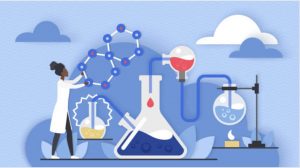
Mastering the O Level Chemistry Practical exam is a pivotal step for students striving for academic success. This component of the GCE O Level Chemistry examination not only tests theoretical knowledge but also practical skills in laboratory settings.
In this guide, we will be covering a range of topics such as the O Level Chemistry Practical Exam format, core practical skills for O Level Chemistry as well as revision strategies and study tips. We will also be sharing with you essential tips and tricks to help you navigate and excel in the O Level Chemistry Practical exam.
The end goal of this guide is to equip students with the knowledge and strategies needed to confidently tackle practical experiments and interpret results accurately. Let’s begin!
- Understanding the O Level Chemistry Practical Exam Format
- Overview of the exam format and structure
- Weightage of practical in overall grade
- Key topics typically covered in the practical exam
- Revision Strategy for O Level Chemistry Practical
- Common mistakes to avoid for O Level Chemistry Practical
- Additional Resources and Further Reading
- Conclusion
Understanding the O Level Chemistry Practical Exam Format
Starting to prepare for the O Level Chemistry Practical Exam can be a bit daunting, but don’t worry – understanding the format is your first step towards success.
In this section, we’re going to explore the O Level Chemistry Practical Exam structure in detail. We will start with an overview of the exam format and structure, followed by weightage of the science practical exam, ending with the key topics typically covered in the chemistry science practical exam.
Think of it as a roadmap that will help you navigate through the exam with confidence. You’ll learn about the different types of tasks you might encounter, the way the exam is organized, and how you can best prepare for each section.
Overview of the exam format and structure
The O Level Chemistry Practical Exam is a crucial part of your chemistry education, designed to test your hands-on skills and understanding of experimental procedures. Let’s break down what this exam typically looks like:
-
Format
The practical exam is usually divided into a few sections or experiments. Each section assesses different skills and areas of Chemistry.
-
Duration
The exam lasts 1.5 hours, giving you ample time to complete each experiment and write down your observations and conclusions.
-
Types of Experiments
You can expect a mix of standard laboratory procedures. These might include titration (a method to determine concentrations), qualitative analysis (identifying chemical substances) and other experiments that require you to observe changes, measure quantities, and interpret results.
-
Assessment Criteria
Your performance is evaluated based on accuracy, the correctness of methods, clarity of observations and your ability to analyze and conclude based on your experimental data. It’s not just about getting the right answer, but also how you get there!
-
Safety and Procedure
Following lab safety rules and correct procedures is crucial. The exam not only tests your chemistry skills but also how safely and methodically you can work in a lab environment.
-
Questions and Report Writing
Besides performing experiments, you’ll likely answer questions related to the experiment and write reports. These questions could test your understanding of the concepts behind the experiment and your ability to interpret the data you’ve collected.
Understanding this structure is key to preparing effectively. Remember, each part of the exam is an opportunity to showcase your skills in practical chemistry. Practice, review your notes, and approach each experiment methodically.
Weightage of practical in overall grade

The practical exam in O Level Chemistry accounts for 15% of your overall grade. This makes it crucial for balancing your preparation between theory and practical skills.
Excelling in the practical can significantly boost your overall score, while a poor performance can adversely affect it. Remember, the GCE O Level science exam not only tests your theoretical knowledge but also how well you can apply your theoretical knowledge in practice.
Focus on both aspects to optimize your grade.
Key topics typically covered in the practical exam
In the O Level Chemistry practical exam, there are several key topics that you can expect to encounter. Here’s a brief overview of what these topics usually include:
-
Qualitative Analysis
This involves testing and identifying different ions in given samples. You’ll use various reagents to observe reactions and record your observations to deduce the identity of the substances.
-
Quantitative Analysis (Titration)
This is about measuring the concentration of a solution. You’ll perform titration experiments, which involve adding a solution from a burette to a known volume of another solution until the reaction reaches completion, as indicated by a color change.
-
Preparation of Solutions
You might be asked to prepare solutions of specific concentrations, which tests your precision and understanding of concepts like molarity.
-
Rates of Reaction
These experiments test your understanding of how different factors affect the speed of chemical reactions. You might conduct experiments to see the effect of concentration, temperature, or catalysts on reaction rates.
-
Heat of Reaction
This could include experiments that involve measuring temperature changes during reactions to understand exothermic and endothermic processes.
-
Electrochemistry
Practical tasks might involve setting up simple electrochemical cells and measuring their properties.
-
Physical Chemistry Experiments
These may include determining melting or boiling points, and investigating other physical properties of substances.
By practicing and understanding the flow and structure of each experiment, you will be better prepared on the day itself. Also remember to note down any common mistakes and any formulas you use for these experiments.
Do note that the list above is not exhaustive. Please consult your teacher for more clarity.
Revision Strategy for O Level Chemistry Practical

Now that we have a better understanding of the format and structure of the exam, we need to prepare for it. But we do not want to just practice blindly. We want to practice as effectively as possible. And for that, we need a plan. Remember, “Fail to plan, plan to fail” …
Review key chemistry concepts
The first mistake a lot of students make is to skip the basics and go straight to doing the past year papers.
DO NOT DO THIS! It is highly ineffective and you end up wasting more time…
Build your foundation first. Having a strong grasp of basic Chemistry concepts includes performing mole calculation and balancing ionic equations etc. They are the foundational knowledge for completing the majority of all practical tasks.
Attend all lab sessions
Once you are proficient at the basics, it’s time to test your foundation. Attend all your lab sessions! DO NOT SKIP ANY OF IT!
There are only so many lab sessions available as everyone is preparing for the practical exam and there is a limited supply of labs.
Take note of the main concept that the lab sessions are testing you for. Is it the rate of reaction? Titration? Electrochemistry? This is crucial as your teachers may be indirectly hinting at you what the potential exam might be about.
Work on weak areas
After each practical, review your mistakes…DO NOT IGNORE YOUR MISTAKES! It is crucial in helping you identify your weaker areas so that you do not make the same mistake again.
Understand where you went wrong.
Is it a careless mistake? A unit conversion issue? A conceptual error? By asking yourself these questions, you will be able to identify what you need to focus on improving. If you are stuck, ask your teacher or chemistry tutor for help to clarify your doubts.
Attempt past year papers
If you are thinking of using past year chemistry practical exam papers, remember to treat every practice like the real thing.
FINISH IT IN ONE SITTING!
That means finishing the paper in 1.5 hours, writing up reports and doing data interpretation. By consistently practicing under simulated exam conditions, you will be better prepared when the actual exam comes around.
Lastly, utilize visual learning tools like diagrams and videos for understanding complex processes and experiments.
Common mistakes to avoid for O Level Chemistry Practical
Now that we have gone through how to prepare for the GCE O Level Chemistry Practical exam, let’s delve into some common mistakes that you should avoid making during the chemistry practical exam.
By understanding the common pitfalls for different experiment types, you can ensure that the data you collect is accurate. This allows you to make better inferences and conclusions which ultimately help you score better in the exam.
Qualitative Analysis
Qualitative analysis as we have seen in the earlier section is a fundamental technique in chemistry used to identify substances based on their properties.
Here are some common mistakes that you should avoid making to get accurate results:
- Using unclean glassware or reagents.
- Testing only once
Titration
Titration, a quantitative analytical technique, is used to determine the concentration of a solution by reacting it with a standard solution of known concentration.
Common mistakes students make include:
- Adding too much titrant, which causes an overshooting of the endpoint, leading to inaccurate results.
- Not mixing the solutions thoroughly to achieve a uniform reaction.
- Choosing an inappropriate indicator for the reaction being titrated, leading to a wrong endpoint detection.
Rate of Reaction
Lastly, we have a rate of reaction experiments. This experiment focuses on testing the different factors that affect how fast a reaction takes to happen.
Students usually have a difficult time getting accurate results because of:
- Inadequate mixing of reactants which leads to localized regions of high concentration, affecting the observed reaction rate.
- Errors in measuring reactant concentrations, volumes, or reaction times which lead to inaccuracies in determining reaction rates.
- Neglecting catalyst effect which can significantly influence reaction rates, leading to inaccurate results.
And there you have it, common mistakes we see students make during experiments that lead to inaccurate data, and hence conclusions which cost them precious grades.
Please be aware of these common mistakes and do not make them during the practical exam!
Additional Resources and Further Reading

Congratulations for making it this far!
In this section, we will be sharing with you some additional resources that will help you in preparation for the GCE O Level Chemistry Practical Exam.
The best one we have found is a compilation of past year practical notes and questions for the Chemistry Practical exam. The science practical notes from Popular features a comprehensive list of past year questions from 2014 – 2023 and you can purchase it online.
You can also grab a copy of it from the Popular Bookstore.
Conclusion
We hope this guide has been helpful to you in better understanding what O Level Science practical is about and how to go about preparing for it.
In conclusion, ensure to keep your chemistry knowledge sharp by revisiting fundamental concepts regularly. Regular practice is key to mastering the subject, so dedicate time to solving problems and engaging with the material consistently.
Attending all your chemistry lab sessions is crucial for hands-on learning and reinforcing theoretical knowledge. Additionally, take the time to review and understand any mistakes you’ve made in the past, using them as opportunities for growth and improvement.
Check out our GCE O Level Physics Practical and GCE O Level Biology Practical guides!
